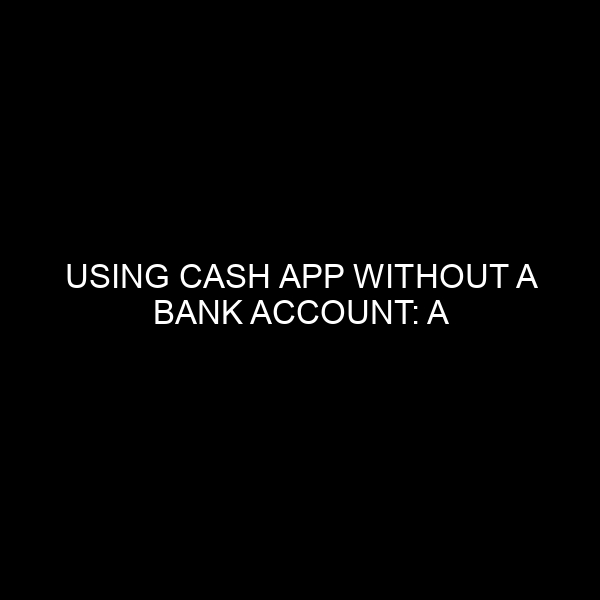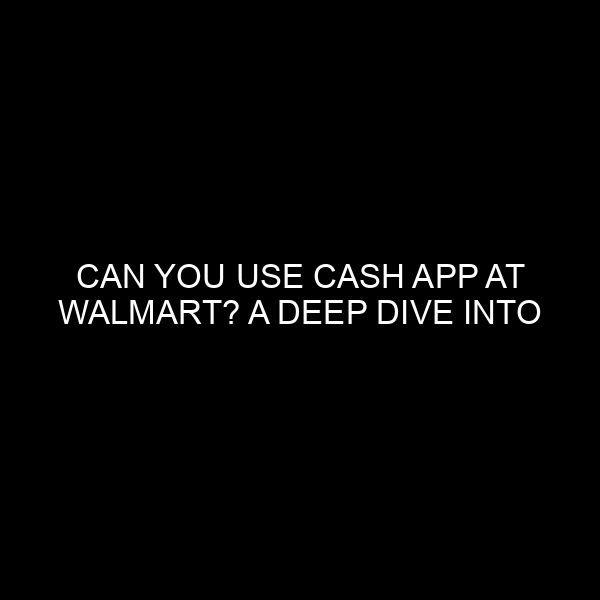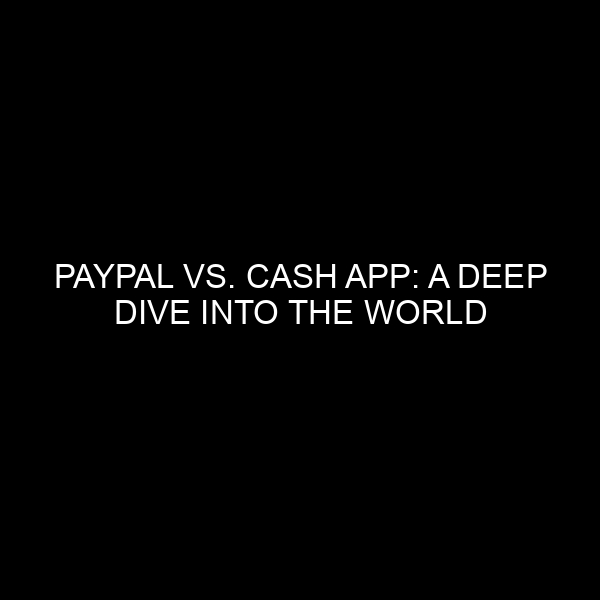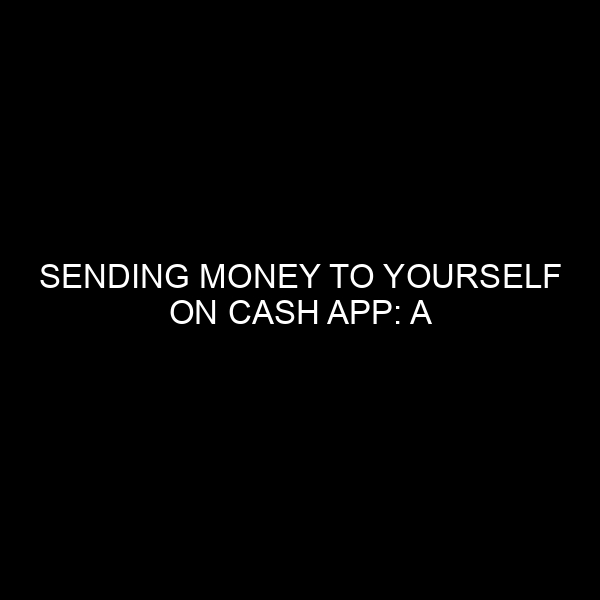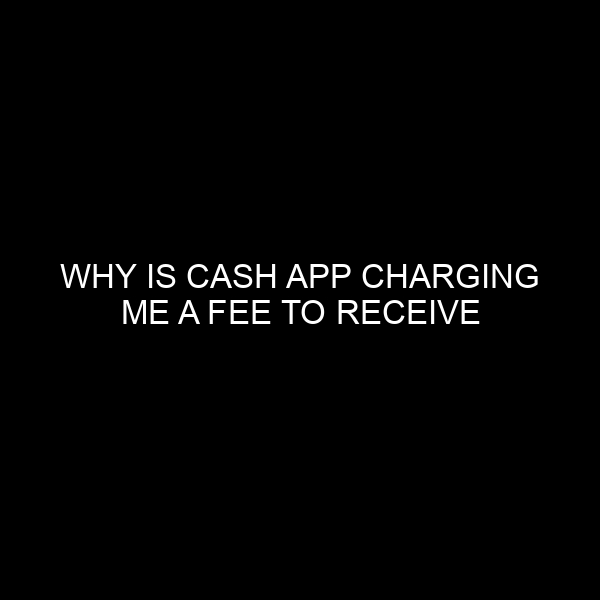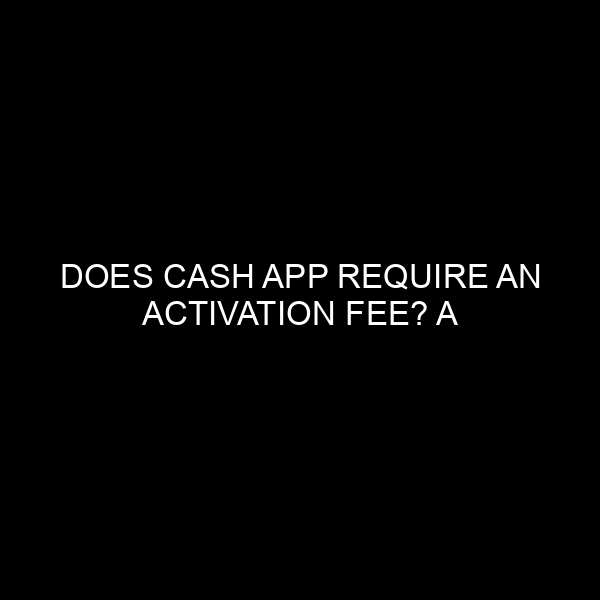Using Cash App Without a Bank Account: A Comprehensive Guide
In today’s digitally-driven era, traditional banking systems are gradually giving way to more versatile financial platforms. One of these revolutionary platforms is Cash App. Developed by Square, Inc., Cash App has quickly risen to prominence due to its user-friendly interface and multifaceted utility.
While many associate Cash App with conventional banking – thanks to its bank transfer functionalities – there’s a lesser-known fact that’s intriguing: you can use Cash App without a bank account. This aspect can be a game-changer for those lacking access to traditional banking services or for those who simply desire more financial freedom. In this article, I will detail four key ways you can leverage Cash App’s features without linking a bank account.
1. Setting Up Cash App Without a Bank Account
How it works:
To set up Cash App, you typically need to provide a phone number or email address. No bank details are required at the outset. This means you can create an account, receive a unique $Cashtag identifier, and start transacting, all without integrating a bank account.
Benefits:
- Flexibility: By not linking a bank, you’re not constrained by its policies and potential fees.
- Privacy: Without bank integration, there’s an additional layer of privacy concerning your transactions.
Considerations:
You won’t be able to transfer funds from your Cash App balance to a bank account, but you can use other features which we’ll discuss below.
2. Receiving Money
How it works:
Cash App allows users to receive money from other users. With your unique $Cashtag, individuals and businesses can send money directly to your Cash App account.
Benefits:
- Simplicity: Transactions are seamless, often requiring just a few taps on a smartphone.
- Speed: Money transfers are almost instantaneous, with the recipient seeing the funds in their Cash App balance immediately.
Considerations:
While the money received will reside in your Cash App balance, without a linked bank account, cashing out directly might be limited. However, there are workarounds such as the Cash Card.
3. Using The Cash Card
How it works:
The Cash Card is a physical Visa debit card you can order through Cash App. It allows you to spend your Cash App balance at any establishment accepting Visa.
Benefits:
- Broad Usability: From online shopping to in-store purchases, the Cash Card has you covered.
- Customization: Cash App offers card customization options, allowing for personalized designs.
- ATM Access: With the Cash Card, users can also withdraw money from ATMs.
Considerations:
There might be fees associated with ATM withdrawals. Also, while the Cash Card acts like a traditional debit card, it’s directly linked to your Cash App balance and not a bank.
4. Investing with Cash App
How it works:
Beyond just transactions, Cash App offers investment options. You can invest in stocks or even cryptocurrencies like Bitcoin, directly using the funds in your Cash App balance.
Benefits:
- Diversification: Offers a straightforward way to venture into the stock market or cryptocurrency.
- Micro-investing: Allows for purchasing fractional shares, enabling investment with minimal funds.
Considerations:
Investments are inherently risky. It’s vital to be informed and possibly consult with financial advisors before diving into investments.
Conclusion
Cash App, with its array of features, offers an inclusive financial platform, ensuring that even those without a traditional bank account are not left behind in the digital transaction era. While using it without a bank account has its limitations, the flexibility, and multiplicity of functions still make it a formidable tool in today’s financial landscape.
As with all financial tools, understanding and cautious usage are paramount. Always ensure you’re safeguarding your financial details and are aware of any associated fees or charges with any platform, including Cash App.
With years in the financial market and banking industry, I’ve observed the evolution of such platforms. Cash App’s rise underscores a shifting paradigm, one where the lines between traditional banking and digital platforms are increasingly blurred, paving the way for a new age of financial inclusivity.
